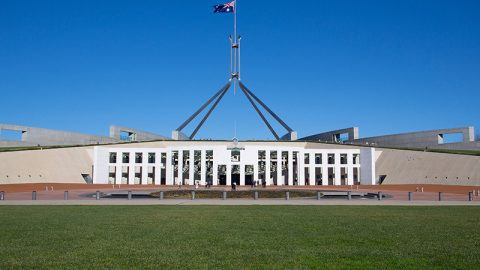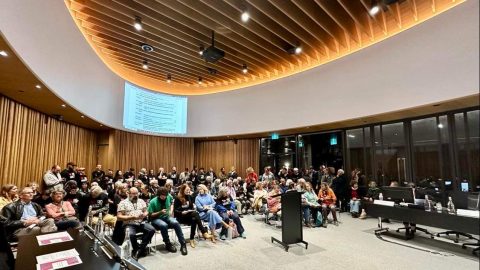Well, that’s a version of what I always find to be an enticing discussion topic – No Growth Economics. It can keep a late night with friends, over a bottle of red, going well into the early hours – always without resolution!
What’s this got to do with anything in these (un)funny covid times, when one’s capacity to focus on anything non-covid related is extremely limited? Well, I will try to explain. Stay with me, I promise you’ll be safe!
If you start looking for more on this topic, you will soon discover it’s a very serious one that very serious thinkers actually constantly think very seriously about. And you will also discover it is the sort of topic that politicians, even if they don’t say they are, are also constantly thinking about, one way or another! So, perhaps it behoves us, mere citizens, to give it a moments thought too!
Let me explain my personal dilemma. As I have grown older, I have wondered more and more (a function of growing older, I expect) why we must maintain a constant, incessant march towards the production of more and more of everything to make our society work, to make people happy; especially when they don’t seem all that necessary or seem to make people all that happy. Is growth necessary? Is it inevitable? Is it possible for an economy to grow forever? Is growth one of Nature’s laws? And so on.
And I’ve wondered, too, whether the implications of climate change and various environmental calamities we humans have visited upon our planet, especially over the course of the past 200 years or so, require us to rethink our pervading theory of growth economics – otherwise known as capitalism. (Now we are getting very serious, if not downright subversive!)
In short, are the objectives of a sustainable planet – not just for non-human living things like trees, but for us too – and growth economics reconcilable in the longer run?
This particular question, in this time of covid, seems to have been made even more relevant than ever. I say that because we have managed – though not by design – to reduce the world’s economies, including Australia’s, to a virtual halt, but without actually destroying society as we have known it. (Indeed, a good number of us are telling those who have been recently surveying our opinions, that we are as ‘happy’ now as we were a year ago, before covid and when the stock market was booming.)
It might be said that what, in fact, we have invented, virtually overnight, is a ‘degrowth society’, if not no growth economics. A question for pondering is whether we should now be taking the opportunity to make this new degrowth society, or components of it, more permanent; and not rush to reestablish the old, far more capitalist one.
I’m really not sure of the answer, but I am intrigued by the question. Even if I were convinced there was an easy, Yes answer, I’m not at all sure how you’d go about making the degrowth economy, or its agreed beneficial components, permanent. But first an interesting bit of economic history – interesting to me at least! (Love history!)
In 1930, the great economist John Maynard Keynes (who hasn’t yet gone out of fashion), in a famous piece titled ‘Economic Possibilities for our Grandchildren’, foresaw a day, a hundred years hence – ie, in 2030, a mere 10 years from our here and now – when we humans wouldn’t need to work as much as we do, where we could enjoy a comfortable lifestyle without the need to maintain a constantly growing economy, and might be afforded the luxury of not focusing so much on pots of gold.
Here’s what Keynes’ imagined (allowing for the gendered language of an earlier era) –
‘For many ages to come the old Adam will be so strong in us that everybody will need to do some work if he is to be contented. We shall do more things for ourselves than is usual with the rich today, only too glad to have small duties and tasks and routines. But beyond this, we shall endeavour to spread the bread thin on the butter-to make what work there is still to be done to be as widely shared as possible. Three-hour shifts or a fifteen-hour week may put off the problem for a great while. For three hours a day is quite enough to satisfy the old Adam in most of us!
‘There are changes in other spheres too which we must expect to come. When the accumulation of wealth is no longer of high social importance, there will be great changes in the code of morals. We shall be able to rid ourselves of many of the pseudo-moral principles which have hag-ridden us for two hundred years, by which we have exalted some of the most distasteful of human qualities into the position of the highest virtues. We shall be able to afford to dare to assess the money-motive at its true value. The love of money as a possession -as distinguished from the love of money as a means to the enjoyments and realities of life -will be recognised for what it is, a somewhat disgusting morbidity, one of those semicriminal, semi-pathological propensities which one hands over with a shudder to the specialists in mental disease. All kinds of social customs and economic practices, affecting the distribution of wealth and of economic rewards and penalties, which we now maintain at all costs, however distasteful and unjust they may be in themselves, because they are tremendously useful in promoting the accumulation of capital, we shall then be free, at last, to discard.’
Wow, hey? 1930!
There is today, and has been for some years now, well before covid, a degrowth movement that mirrors, in some ways, Keynes’ thinking. It encourages G20 type countries, like Australia, to set as their goals zero or even negative GDP growth.
In his 2018 book, Degrowth (2018, Agenda Publishing Limited), Professor Giorgos Kallis of the Autonomous University of Barcelona, who teaches political ecology and ecological economics, explains that the term ‘degrowth’ has emerged within ecological and other heterodox, that is to say, contrarian thinkers, a critique of the idea (and ideology) of economic growth.
Instead, degrowth advocates a contraction of economies by reducing production and consumption, arguing that it is possible to do so without reducing prosperity or wellbeing. One might see in the degrowth community a resurgence of a radical theoretical and political variant of environmentalism, or ‘ecologism’, based on the key premise that there are, and that there must be, ‘limits to growth.’
Kallis’ account of degrowth is interesting. It’s not necessarily shared by all such thinkers, but daresay it is reasonably representative of them. He doesn’t appear to require something like a Marxist destruction of capitalism, as we know it, to get there, or does he? He certainly does imagine a far more caring and sharing society than the one demanded by our prevailing mixed-economy/capitalist ideology. In his ‘vision’, a degrowth society holds the economic not as an end in itself, ‘but a means to a superior end: the satisfaction of our biological needs and our quest for meaning.’
It has an appealing Utopian ring to it, doesn’t it? Even a touch of religious fervour. Maybe a little Marxist.
Anyway, and this is the bit in his thesis that I find particularly intriguing and challenging, Kallis identifies nine principles that underpin his personal vision of a functioning degrowth society –
- An end to exploitation. Thus a degrowth society would be egalitarian and classless.
- Direct democracy. Local, regional and national assemblies would deal with policy issues and administrative tasks according to the scale of the issues.
- Degrowth involves localised production.
- Sharing, a principle that goes with ‘reclaiming the Commons’. And including sharing work, public space, resources and expertise.
- A degrowth society would shift resources to the provision of ‘relational goods’. That is to say, that enable and support relationships within a society, like family.
- Unproductive expenditures and the concept of ‘depense’ are central to the pursuit of meaning and the production of a given social order. Waste is not bad per se; it’s only waste from the exploitation of other humans or the environment that’s bad. Everybody should, in effect, have the right to ‘be lazy’, not just the rich.
- Care. Care work should be revalued, and redistributed. It falls disproportionately on women, and immigrant women. This principle goes hand in hand with redistribution. Caring should extend to caring for the environment.
- Diverse. While the current economy is diverse, in a degrowth society the current hierarchy would be inverted. Unpaid care work, for example, would be valued, and non-profits would be the dominant producers of good and services.
- Finally, all his would result in a ‘decommodification’ of land, labour and value. So, for example, competitive sport would be deprofessionalised (imagine no more Dockers – at least as we know them!), and child care would be free.
Kallis recognises that there is more than a touch of the Utopian to his vision of a degrowth society. His point is though, that he’s not offering a ‘blueprint’ to a better society, but ‘a canvas that nourishes new imaginaries’. (I’ve not come across the word ‘imaginaries’ before, but i like it.) In short, he wants us to think about what an idealised society might look like; to let our own sci-fi minds run free; and then to use our existing society’s established democratic ways of deciding things to work out how to achieve newly agreed goals.
Put another way, Professor Kallis challenges us to think harder about why we are on this planet, and how we live. Amen to that!
I should add, lest you think that he only thinks about ‘principles’, that Professor Kallis also has a hard-baked set of ‘actions’ that he believes would assist in creating a ‘concrete’ Utopia, including: abolishing GDP; sharing work; a universal income or guaranteed bundle of public services; and a redistributive taxation system to increase equality. Interestingly, Spain – wherein Barcelona is still situated – is now talking about introducing a universal income.
As always with these sorts of things, the devil is in the detail!
Well, there’s what’s on my mind just now. Food for thought.
I must say, I’m enjoying having time to read and think. Never thought I’d have time to read and think (a bit), and write (shallowly, agreed!) about an imaginary degrowth society.
But these Covid times surprise us all, and have certainly hastened me to do so!
One way or another, I think we all ruminate about stopping the World and getting off more often than we care to admit, not only during those late night discussions that, with a glass of red, spill over into the early mornings!
See you soon…







